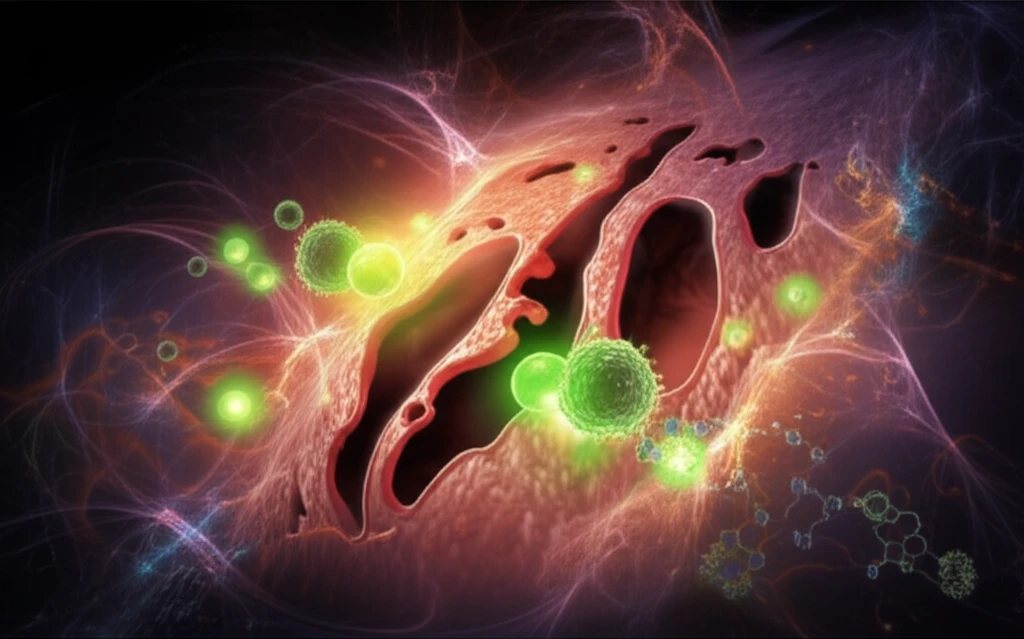
Gut Check: How Trauma Impacts Your Intestines and What You Can Do About It
"New research reveals the hidden ways trauma and hemorrhagic shock disrupt your gut health. Learn practical strategies to protect your intestinal barrier and promote healing."
Our bodies are remarkably resilient, capable of withstanding immense stress and trauma. However, the impact of such events often extends far beyond the immediately visible wounds. Emerging research highlights the profound connection between trauma, particularly trauma-hemorrhagic shock (THS), and the health of our gut.
The gut, often referred to as our "second brain," plays a crucial role in overall well-being. It's responsible for nutrient absorption, immune function, and even mental health. When trauma strikes, this intricate system can be thrown into disarray, leading to a cascade of negative effects. Think of it like this, When trauma occurs, the body's resources are diverted to survival mode. This can disrupt the gut's normal processes, making it vulnerable.
This article will delve into the groundbreaking research exploring the specific ways THS disrupts the intestinal barrier. We'll break down the science in an accessible way, revealing how metabolic changes, inflammation, and compromised gut integrity contribute to a weakened digestive system. More importantly, we'll provide you with practical strategies to protect your gut, promote healing, and reclaim your well-being.
Unmasking Trauma-Hemorrhagic Shock (THS): What It Is and Why It Matters for Your Gut

Trauma-hemorrhagic shock (THS) occurs when the body experiences severe trauma coupled with significant blood loss. This combination creates a perfect storm, depriving tissues of essential oxygen and triggering a systemic inflammatory response. While the immediate focus is on stabilizing the patient, the long-term consequences for gut health are often overlooked.
- Compromised Intestinal Barrier: THS weakens the protective lining of the intestines, making it more permeable. This "leaky gut" allows harmful substances to enter the bloodstream, triggering inflammation.
- Inflammatory Overload: THS incites a surge of inflammatory molecules within the gut, further damaging the intestinal lining and disrupting its delicate balance.
- Metabolic Mayhem: THS alters the metabolic processes within the gut's mucosal layer, affecting how cells function and repair themselves.
- Mucosal Layer Damage: The protective mucus layer lining the gut is thinned and depleted, leaving the intestinal lining vulnerable to bacterial invasion and damage.
Reclaiming Your Gut Health: Practical Strategies for Healing and Protection
The research paints a clear picture: trauma significantly impacts gut health. However, the good news is that you're not powerless in the face of these challenges. By adopting a proactive approach, you can support your gut's natural healing processes and build a more resilient digestive system. In addition, it’s really important that you consult with health care professional to get a personalized plan.
